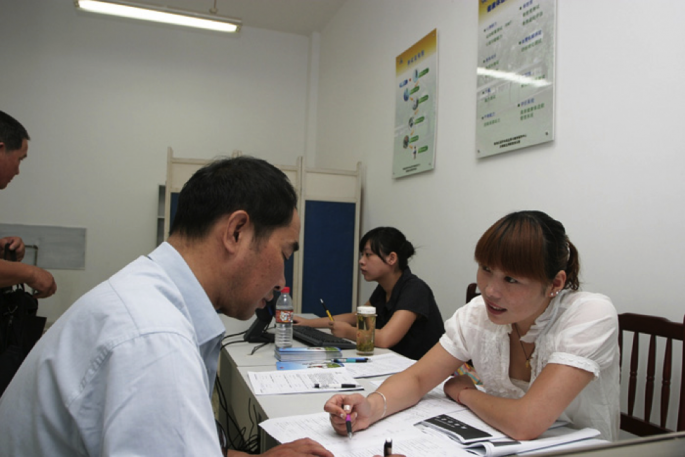While the vast majority of the Sanlitun Health Center’s patients are local Chinese, it is increasingly becoming the first choice among neighborhood expats.
The expat patients that do make use of the center’s services tend to be staff or family members of staff working in nearby embassies and businesses. Director Cui says that expats generally go to the center for treatment of minor health issues such as common colds, headaches and fever. Moreover, expats with kids go to the center for child health exams and vaccinations.
The center provides vaccinations free of charge for a range of illnesses including tuberculosis, hepatitis and polio to local and expat children alike. According to Cui Xueli, the director of the center, although expatriate patients currently make up less than 1 percent of the center's annual 120,000 patients, their numbers have been slowly increasing in the last couple of years. Besides western medical services, many expats are interested in the center’s traditional Chinese medicine department for treatment of less straightforward issues such as work-related stress.
In addition to the convenience of being close to their work or home, most of the center staff agree that one of the center’s key attractions for expats is the price. According to Director Cui, there is no price difference between locals and expats. All are charged with the same price for the same services. Those prices, from an expat's point of view, can be extremely affordable. For example, patients pay 3 yuan or less than 1 U.S. dollar for consultation. Furthermore, standard health exam for a child costs about 50 yuan or less than 10 U.S. dollars.
Perhaps the only negative thing about the center for expats is that there are few center staff members who can speak languages other than Chinese and English. The center suggests that non-Chinese and non-English-speaking clients arrange for a translator to accompany them on their visits.



























